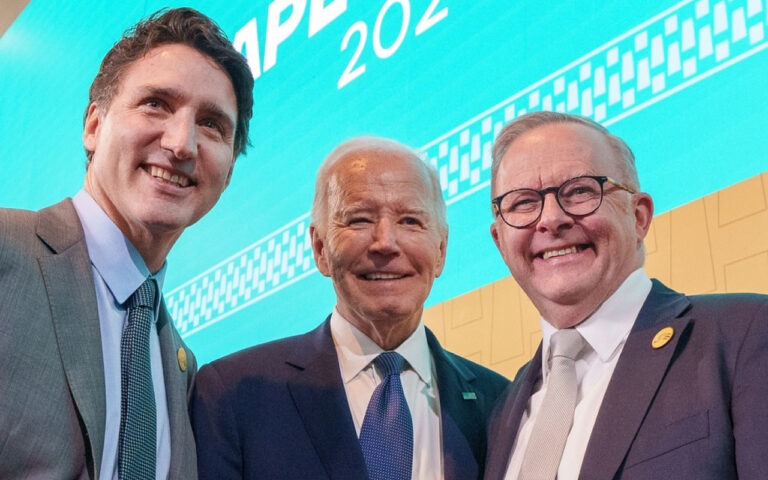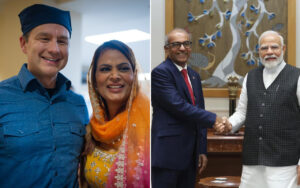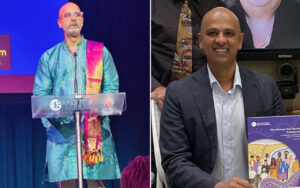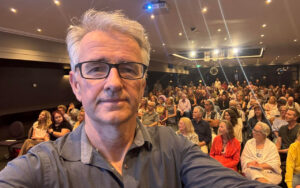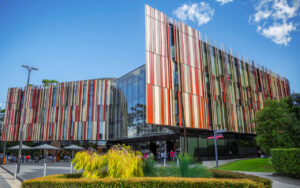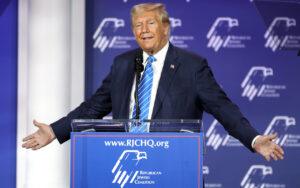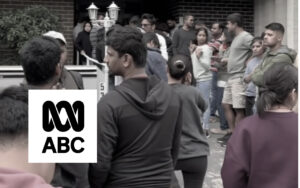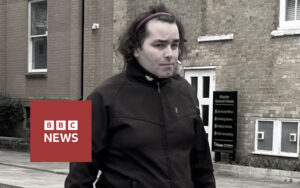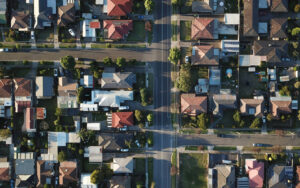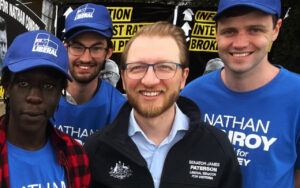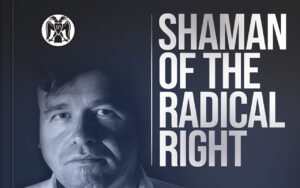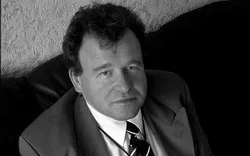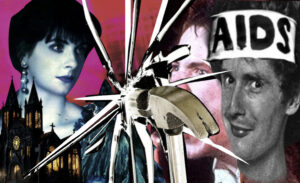Truth and principles count for nothing when you are powerless
The return of Donald Trump to the American presidency seems to portend a shift back to normalcy and a renaissance on the right. The President-elect has already announced he’ll annul the LGBT insanities that have long afflicted us; that he’ll protect free speech; and that he’ll end the leftist rot in universities.
Despite all this, the main experience of the right in recent years has been failure. The last few decades have seen leftists and liberals seize control of all our major institutions: the media, the academy, the corporate world – all of these have become tacitly if not explicitly left-liberal.
This has been a shock to many conservatives who still assumed they were the “natural party of government” or that the obvious inadequacies of liberalism would render it unviable.
They were wrong. Liberalism has predominated while conservatism has receded in kind.
Indeed, American author Auron MacIntyre has a quip that perfectly illustrates the plight of the centre-right: “It’s not hypocrisy; it’s hierarchy”.
He means, of course, that conservative complaints about the inherent errors of liberalism mean nothing to an enemy that doesn’t care. Rightist appeals to injustice are immaterial when leftists can simply render the right irrelevant.
What we have recently witnessed has been an inversion of the natural order. It is the right that has been reduced to schoolyard dweebs while the leftist bully reigned supreme.
This has been seen in any number of spheres on a daily basis. Take Aboriginal issues. The defeat of last year’s Voice referendum was ostensibly a victory for the right against leftist overreach. The real problem, however, was the mere existence of the proposal itself.
The establishment right, if you recall, had already refused a Voice as they deemed it an institutional insanity. Then-Liberal PM Malcolm Turnbull rejected such a proposal in 2017.
As the former Prime Minister remarked, the plan would be a “radical change to our constitution’s representative institutions” and “would inevitably become seen as a third chamber of parliament”.
That the ALP had the audacity to attempt this initiative – and that they won around 40% of the vote and a majority in the ACT – confirms the extent to which left-liberalism has become dominant.
What the ALP and liberal elites were attempting, remember, was to embed race in the constitution as part of a broader push to shift Australia even further leftward. What these groups wanted was nothing less than to completely remake the country.
Prime Minister Anthony Albanese even said as much. As he noted early in his term, his plan was to “entrench” left-liberalism within our institutions. The PM, lamenting how many of the reforms of the Rudd-Gillard years were erased by the Coalition, stated the following:
“My experience of what I believe were good governments led by Kevin Rudd and Julia Gillard is that some of the good work that was done was easily undone because it wasn’t entrenched. That idea of permanent change is important to me.”
This is an emblematic remark. Among the changes Albanese had planned were an “Indigenous voice to parliament, a republic and lowering the voting age to 16”. All of which would have favoured the political left and changed the character of the country.
As a further insult to the right, even though federal Labor failed with the Voice, many states are pressing on instead. In Victoria, the state “most advanced on treaty processes”, the Treaty Authority has launched a database to hold information “on land and waters which could fall under treaty negotiations”.
A development that will not only benefit “First Peoples” in Victoria, “but ultimately all First Peoples in the nation”, as Djab Wurrung man and chair of the authority, Jidah Clark, told the ABC.
A further area of rightist impotence concerns the LGBT. Like Aboriginal affairs, hardly a day passes without an egregious occurrence from this group, yet the right remain neutered in response.
What we have lived through, to be clear, is an explosion in LGBT activity the likes of which have never before been seen. Over the last few decades: gay marriage has been legalised; gender-fungible birth certificates have been introduced; children have been given puberty blockers and adolescents have undergone “gender reassignment” surgeries; natal men have assaulted women in sporting events; and LGBT ideology has been normalised across entire sectors of society.
At every step of the way there were perfectly legitimate arguments against each and every one of these occurrences – and at every step of the way they were ignored or defeated. The damage done by puberty blockers and “transitions”, for instance, is slowly being brought to light via events like the closure of the UK’s Tavistock Clinic or an Australian contingent that is noting the “serious human cost” of our LGBT approach.
Once again, we on the right weren’t wrong, we were just impotent.
To take another example, Tasmanian Liberal senator Claire Chandler recently tweeted her dismay at Labor’s plans to install “gender inclusive bathroom signage” at a federal building in Canberra. The ALP, she said, are “denying women in the public service the right to single-sex bathrooms in their own workplaces”.
She is of course correct. Yet like Victoria, which has installed “gender-diverse” bathrooms in Melbourne’s Federation Square and hosted drag queens in its parliament, she and her party remain powerless.
None of the errors of the LGBT movement matter to a side that is unwilling to entertain them. Even obvious LGBT failings – from high suicide rates to low life expectancy – are of little import to an opponent that is purely partisan in its approach. For the left, every day is an opportunity to enact Carl Schmitt’s friend-enemy distinction – and that they do with glee.
A final area of rightist impotence concerns immigration. As recent African violence in Melbourne and our cross-country tobacco war confirm, conservatives who warned about the catastrophic effects of indiscriminate immigration were right to do so.
Yet again, these voices were ignored or deemed irrelevant. Liberal leader Peter Dutton, for instance, accurately noted that Melbourne had a problem with African gangs in 2018. As usual, he was slandered and shunned by our Cathedral-class in response.
In the interim, life for the Liberals has gotten worse. The Victorian Liberals lost to Labor for a third straight time, making it 20 out of the last 25 years the state has been run by the ALP. The federal Liberals lost office in Canberra. The party also lost all states and territories except Tasmania.
The ALP went the other way. Labor held every state outside the Apple Isle – and still holds every one outside Queensland and Tasmania. They spent millions trying to foist an Indigenous Voice on the country and embed race in the constitution. They also increased immigration to record levels and sourced most of it from the Subcontinent and East Asia.
They now plan to ban anyone under 16 from using social media. A development that is no doubt part of a greater shift towards censorship and a hard managerialism that will install left-liberalism as the only acceptable opinion.
The lesson in all this is a Nietzschean one. To paraphrase the philosopher, the ideas that prevail in a given epoch are “not a function of truth, but of power”.
A notion we are now seeing with the return of Donald Trump and his reforms for America.
This is obviously relevant for Australia. If our right wing is ever to regain influence it is going to have to find a way to stop being the “Noble Losers” that American writer Sam Francis famously remarked upon and, like Trump, somehow obtain actual political power.
